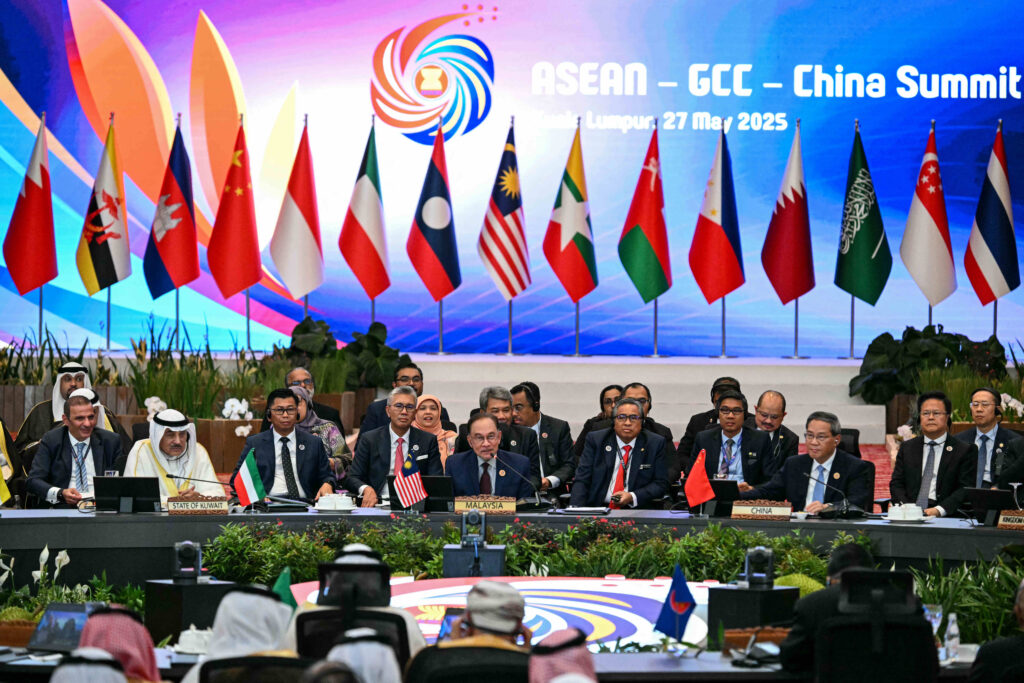
- ARAB NEWS
- 01 Aug 2025

TOKYO: Leaders from ASEAN, China and the Gulf Cooperation Council have agreed to form a joint working group to foster closer economic collaboration in response to the economic policies of US President Donald Trump, Nikkei Asia reports.
The report says a draft statement commits the parties to “enhanced trade and investment” by prioritizing large-scale infrastructure, logistics and supply-chain development.
It also states the three groups will collaborate to develop joint research and initiatives on advanced nuclear reactors, low-carbon technologies and renewable energy.
China was represented by Premier Li Qiang while the GCC states sent crown princes, senior ministers, and other officials. Li said the summit offered a chance to “jointly create a model of global cooperation and development for this era.”
In his opening remarks at the summit, Malaysian Prime Minister Anwar Ibrahim said the relationships among the participants offer “substantial untapped potential.”
According to officials, China and several other countries proposed exploring the inclusion of the GCC in the Regional Comprehensive Economic Partnership (RCEP), the 15-member trade pact that includes China and ASEAN. In response, ASEAN said it will conduct feasibility studies on the GCC’s potential entry into RCEP in addition to a separate trade agreement between ASEAN and the Gulf states.
During the meeting, China and several countries reportedly expressed “disappointment” over the recent US tariffs, highlighting growing concerns over rising protectionism.
“China’s trade footprint continues to expand, and the GCC –armed with sovereign wealth and strategic energy exports – is building lasting economic linkages in Asia,” Ilango Karuppannan, a former Malaysian diplomat, told Nikkei.
Export-reliant ASEAN economies are looking to hedge against the US, leaning on China’s established trade channels and the deep pockets of Gulf nations.
ASEAN’s trade with China and the GCC has been growing steadily. Since the start of Trump’s first term in 2017, the bloc’s trade with China and the GCC has grown by $375 billion, outpacing the $220 billion rise in trade with the US. Combined, ASEAN, China and the GCC represent more than 20 percent of the world’s gross domestic product.